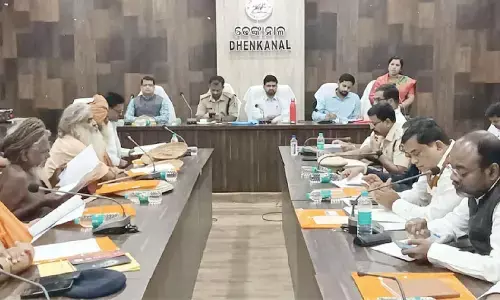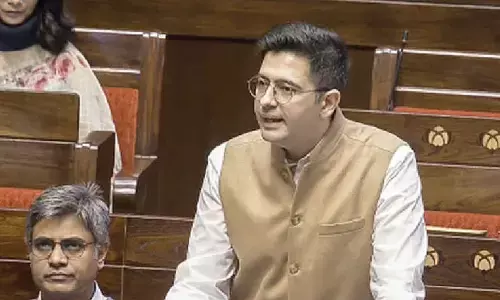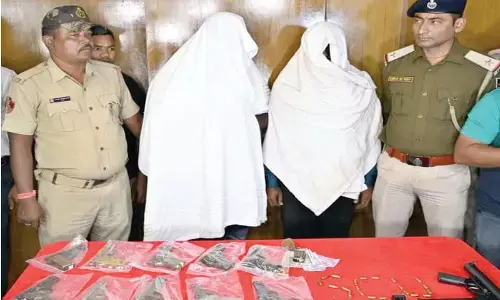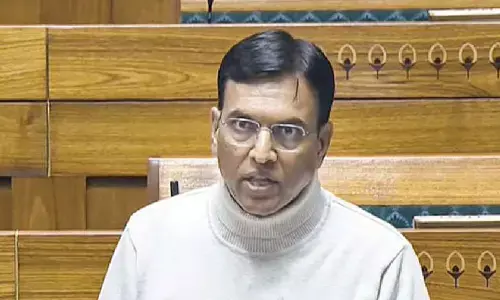Women overburdened by work, violence and social norms, says Nandita Das

Nandita Das
Acclaimed film actress and director Nandita Das, who is always passionate about women's welfare and gender equality, is no stranger to tackling difficult issues that are often missed or go unnoticed, as did most notably in her film "Zwigato", starring Kapil Sharma.
Acclaimed film actress and director Nandita Das, who is always passionate about women's welfare and gender equality, is no stranger to tackling difficult issues that are often missed or go unnoticed, as did most notably in her film "Zwigato", starring Kapil Sharma.
At the launch of the ILSS Emerging Women's Leadership Program in New Delhi, Das, however, spoke about her short film "Listen to Her".
She shot the film, which, like "Zwigato", also revolves around the theme of the complexities of life under Covid-induced lockdowns, at home with son Vihaan and it zeroes in on the issue of women being overburdened while staying back and facing domestic violence to boot.
"One fine morning, I woke up and read this newspaper article about how women are being overburdened during the lockdown. And I am talking about the privileged class, who are attending zoom meetings and taking care of their kids and what is being cooked at home," Das said, unspooling her memories of how the idea for the film germinated.
"Domestic violence was on the rise -- not just in India, but the world over," Das said. "These two threads somehow came together. If we say domestic violence exists in a certain class, we know it's not true, it's across classes. I'll be afraid to acknowledge that."
She added: "There is an overburden of work, not just in the poorer sections, but across all classes, and probably in a strange and a more subtle way, in a more privileged class."
Das, who was seen most recently at the Toronto International Film Festival, where she had premiered "Zwigago", then went explain how she shot the entire short film at home
"I didn't even have a tripod. I had no filming equipment. So, just with my phones, and I had two phones -- one phone to shoot and the sound rolling in the other, which I would give to my cook. And so that seven-page story I wrote one morning, was shot by the next," Das recalled.
"It is just a little story about two women when there wasn't another woman around. The rest are all voices. And there is a male voice. A lot of people asked me where Ali Fazal was sitting. And I was like, 'No, he wasn't in my bedroom'."
Das said women need to be confident and open up on different issues. She said on certain occasions, because they carried different responsibilities, women often forget what they wanted in life and what their hobbies were. She added that she advises friends not to be overburdened and think about their needs as well.
"Once my friend was visiting my place and I asked her, 'What do you want to have?'. She replied, 'My kids are like this, so I can have the same.' And I was like, 'No, you tell me what you want because that is also important.' Sometimes while thinking about our families and kids, women often forget what they want for themselves. The fact is, even I do the same and I am also no different to those women," Das said.
She later discussed how wearing the hijab has become an issue across India. Women are asked either why they are wearing the hijab, or why they are not, but no one asks them what they want.
Certain times, Das said, women believe that they do what they want to do, but it is in reality what society wants them to do. Their minds is conditioned in such a way that they get confused about their own needs and desires.
"Sometimes we think we are deciding that this is my decision, it's my body. I want to wear this or I want to wear that, I want to look like this or I want to look like that. Is it really my decision?" Das asked.
"Or is it being informed by all those images that are being bombarded that I need to be light-skinned, that I need to be thin, that my hair needs to be proper, that my waist needs to be of this size? Is it informed by that? So, it's a long and meandering journey But yeah, there is no wrapping up really because it's an ongoing journey that we all have," Das added.
Later, Das also discussed about the positive changes that are happening in the film industry with more women directors and writers coming up and making their voices heard.
She concluded by saying: "After becoming a mother at 40, I was challenged with my own thoughts, thoughts of what I thought I knew, what I had thought I had internalised, and what I thought I was capable of. I started observing myself and other women around me much more and realised till we individually, in our own hearts, don't really change, the collective and cumulative change is not going to happen as fast as we want it to.
"We are here because we need to hasten that change because it is just taking too long, and many lives are perishing while we still think, feel and understand our own self-doubts and vulnerabilities."













